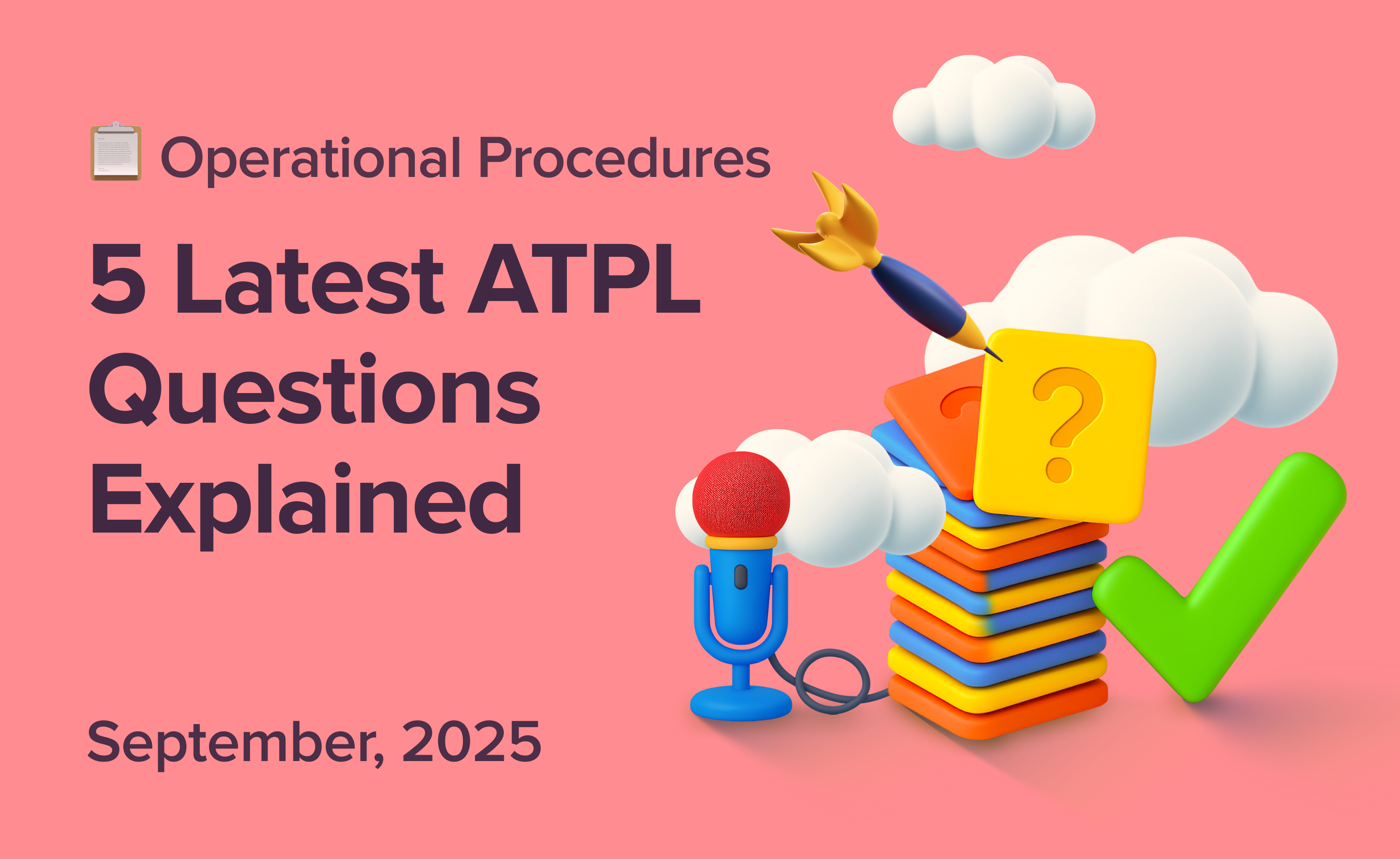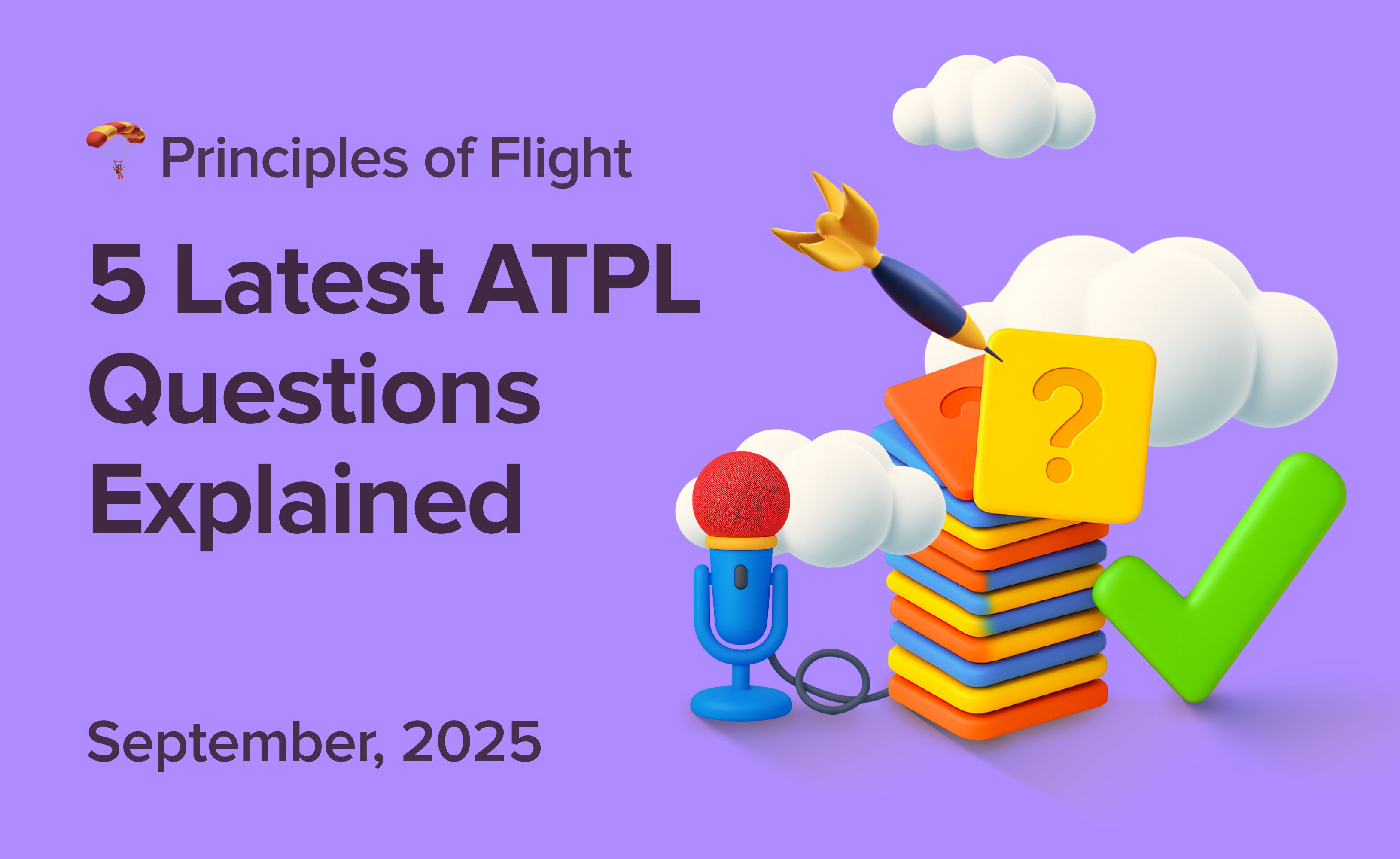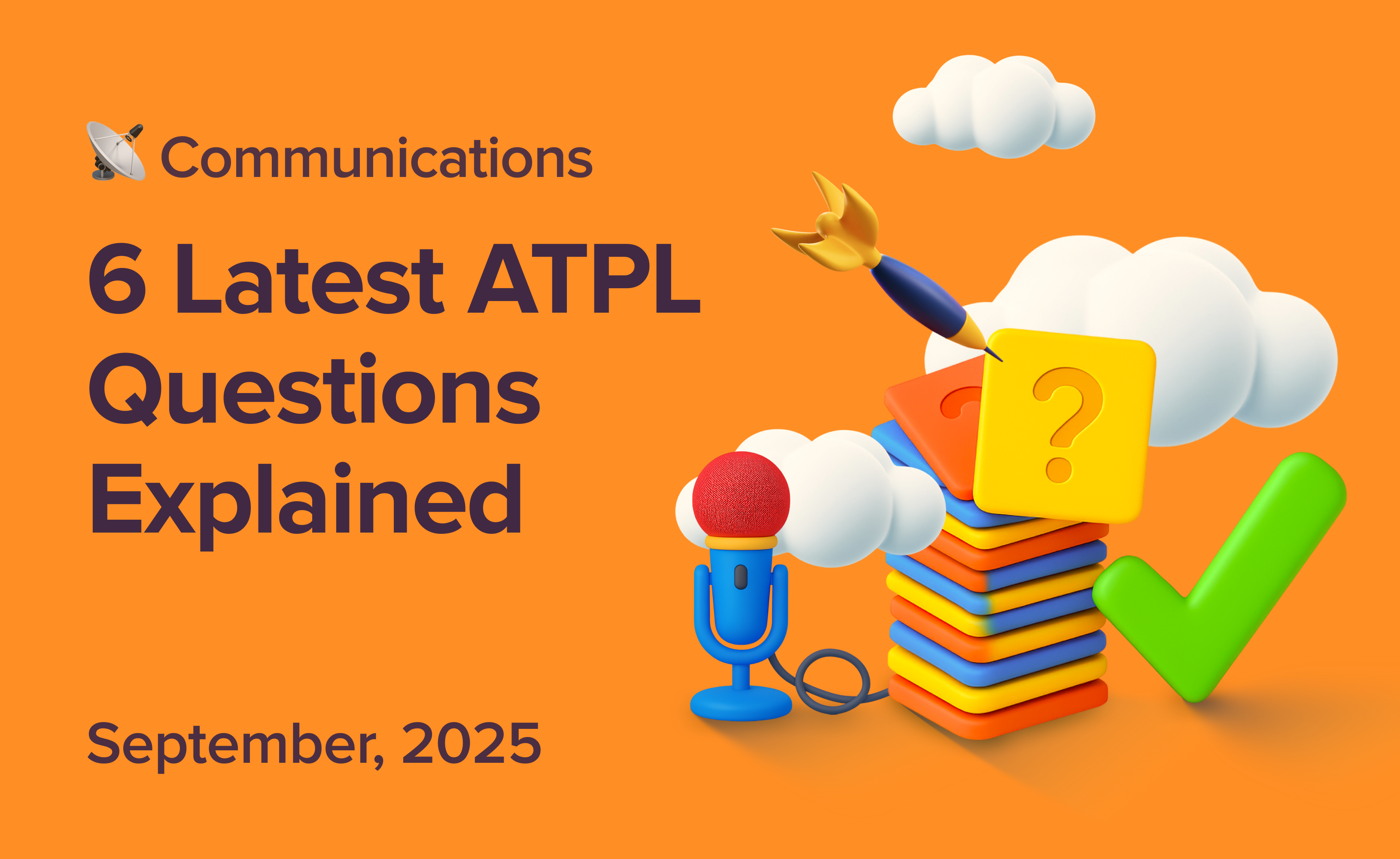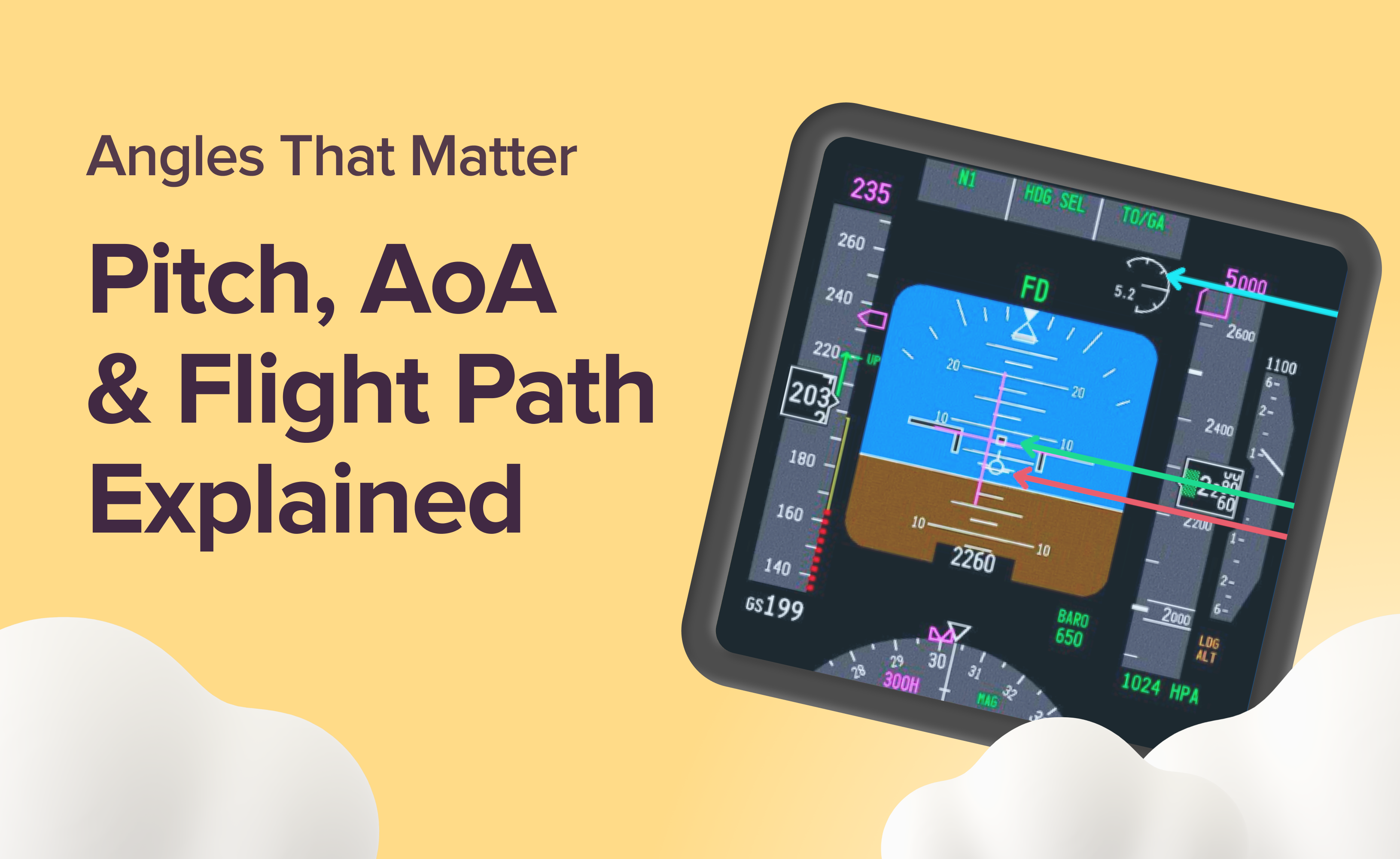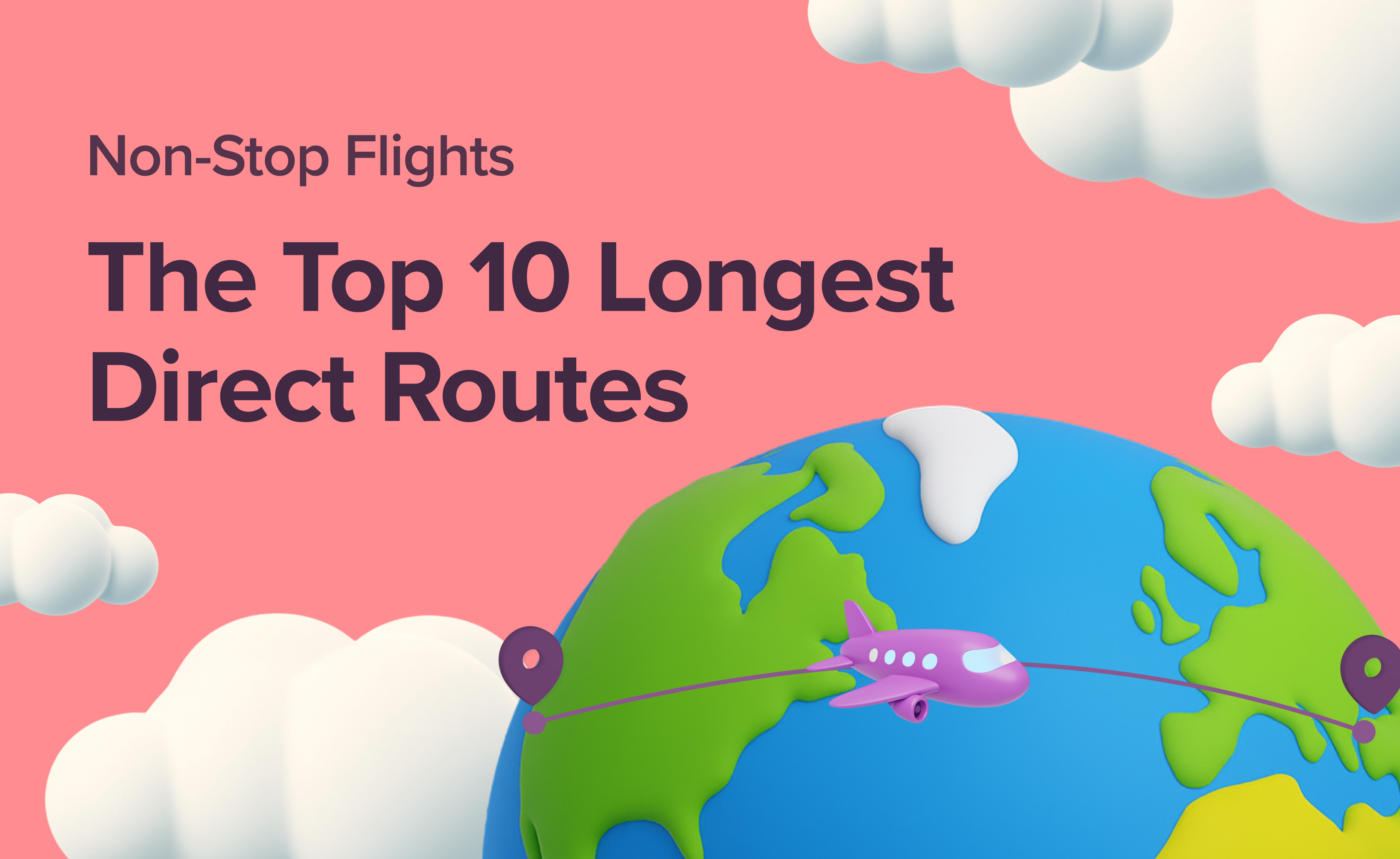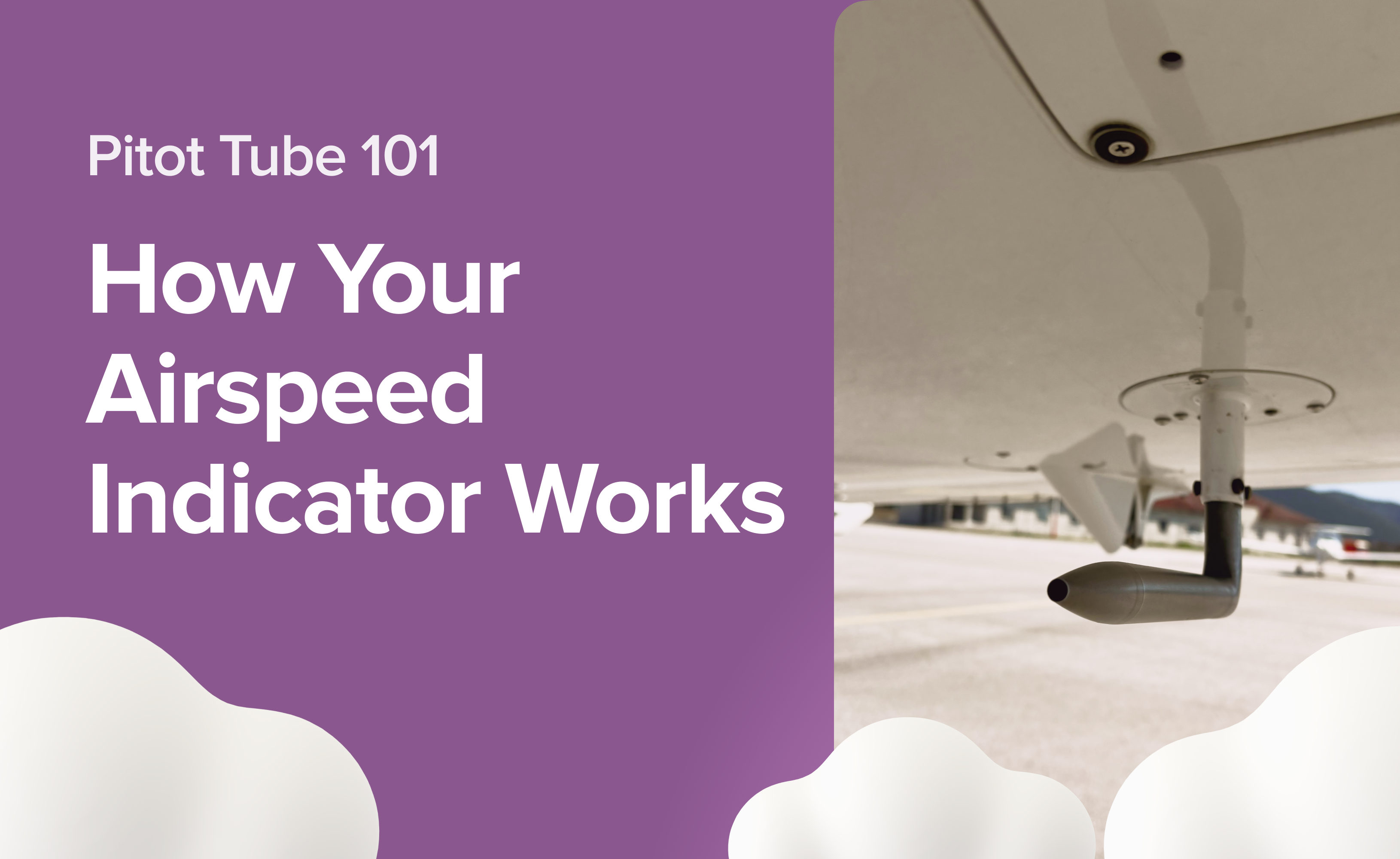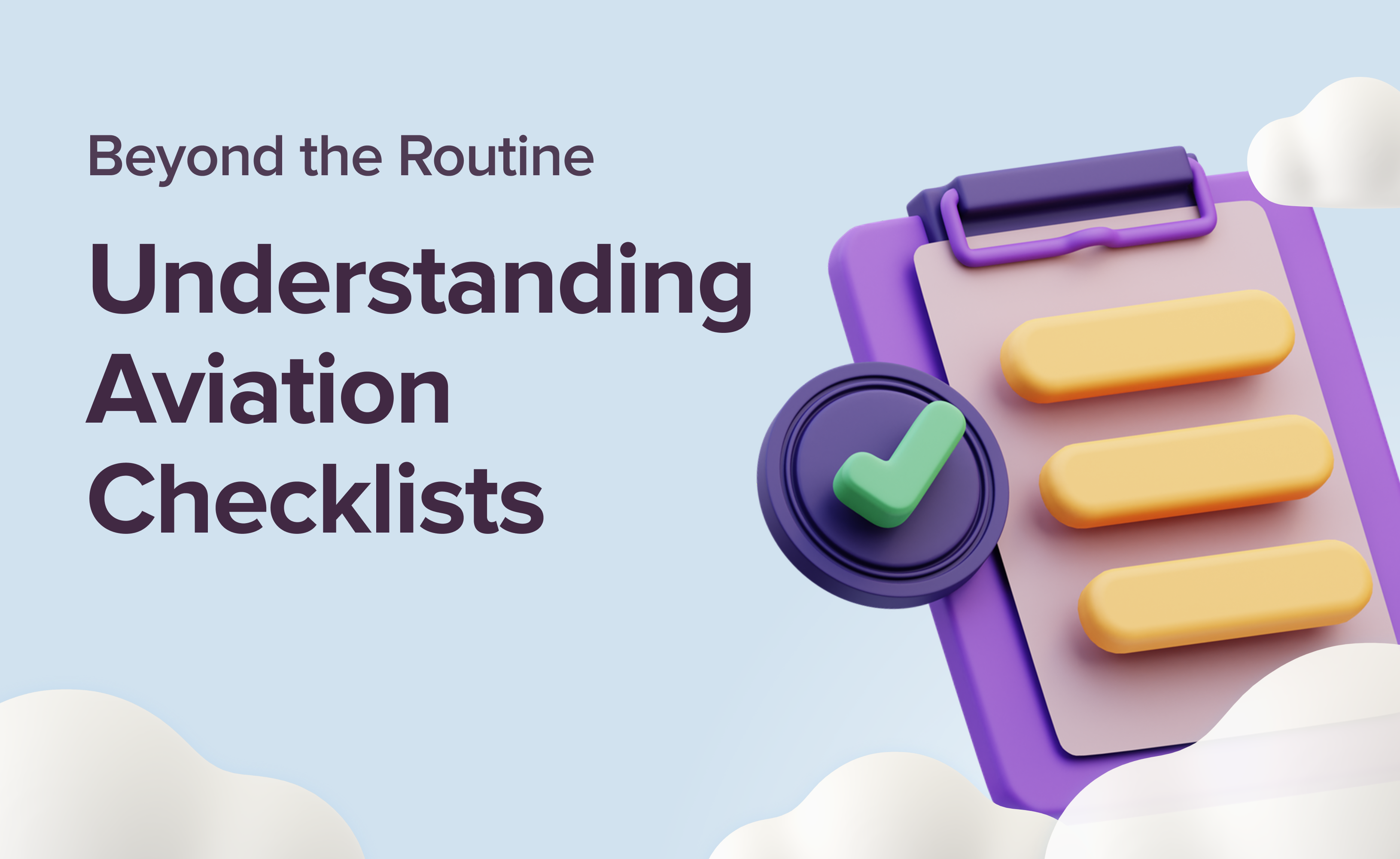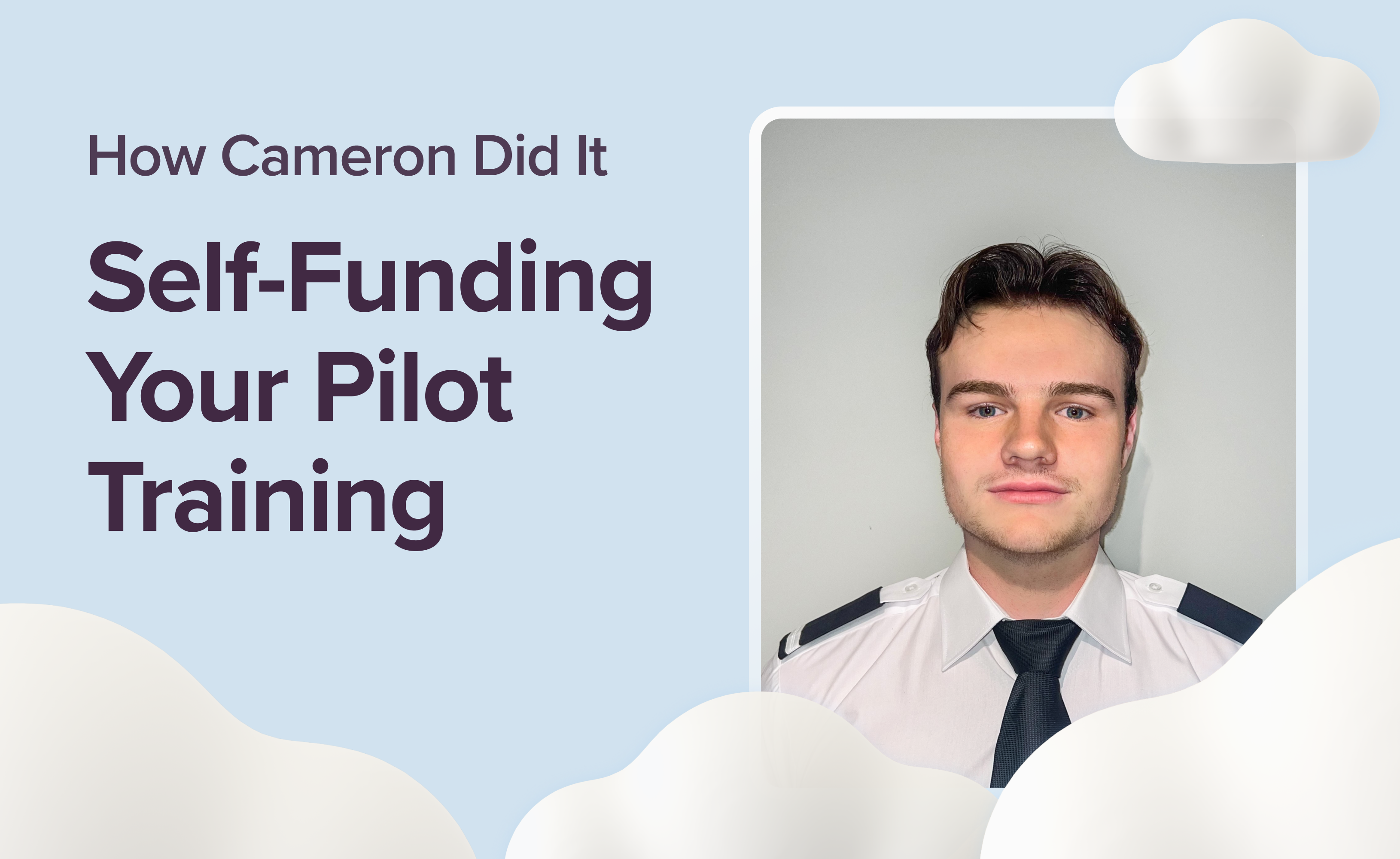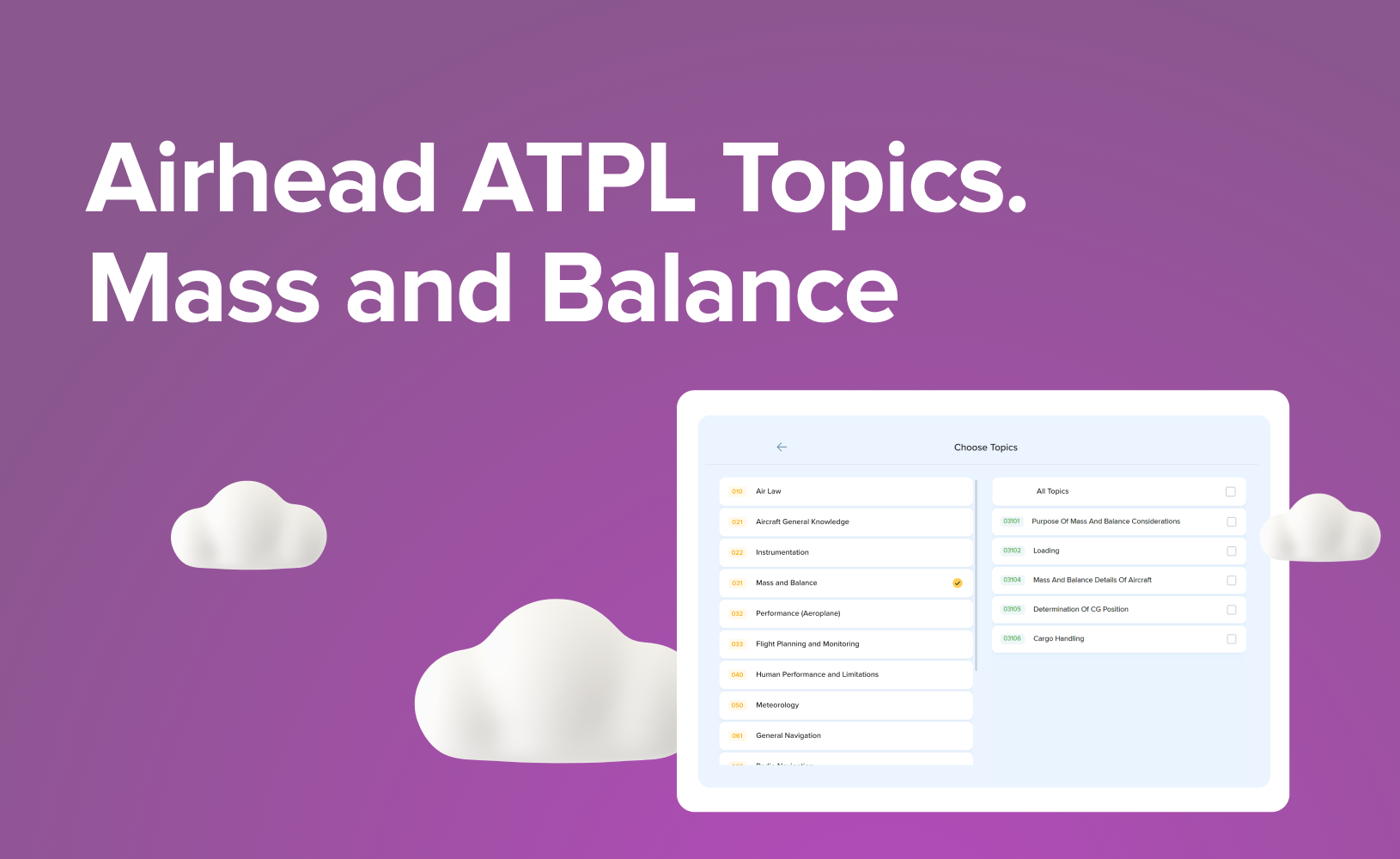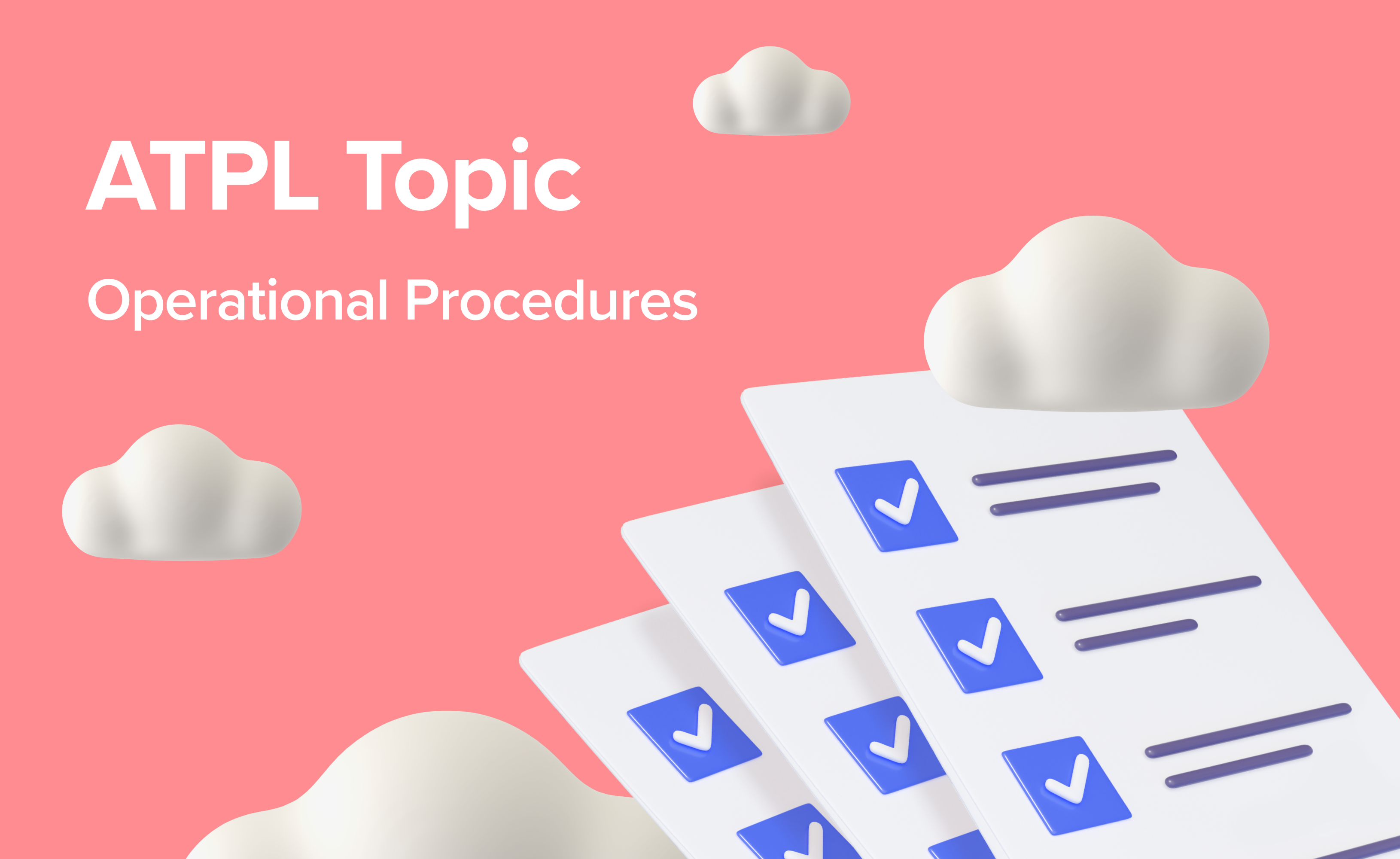ATPL Exam Success Formula: Proven Strategies from Real Students

Feeling overwhelmed by the ATPL mountain? Those 13 subjects, with their complex theories, formulas, and regulations, can seem like a 3 am pop quiz on Everest. But don't lose hope, future pilot! Our graduates, Tomas, Emily, and Cameron, have been there and conquered those exams with flying colours. Now, they're ready to share their “pilot journey story” and the valuable insights they gained, proving that the ATPL isn't an impossible peak, but a summit within reach with the right guidance.
Meet Tomas, a diligent student who cracked the code of efficient learning. Then there's Emily, whose learning approach was based on flexibility and regular exam practice. And finally, we have Cameron, who developed clever techniques to retain even the most complex information. Their unique approaches highlight the fact that there's no single “right” way to conquer the ATPL – you simply have to find your personal best practice!
Want to know the exam difficulty breakdown? Check out our “13 ATPL Subjects” guide here.
A Strategic Approach Taken by Tomas

Our commercial pilot, Thomas, just passed the exams and is here to share his winning strategies. He highlights the importance of developing a study approach that focuses on understanding over rote memorisation.
Here are 5 key takeaways from his ATPLs prep experience:
Build a Solid Theory Foundation
As Thomas advises, it is smarter to focus on building a strong foundation in aviation knowledge first. It may be compared with laying the perfect runway for your exam take-off. Textbooks are your first stop, providing a solid base to grasp the key theoretical concepts before you dive into question banks to master your understanding.
Leverage Question Banks Effectively
Question banks are your virtual flight simulators. Treat them strategically, just like Thomas recommends.
Here's his proven approach to question bank exam preparation:
Daily practice. Aim to answer a significant number of questions (200-300) daily to solidify your knowledge and identify areas that require further attention.
Clarify doubts. Don't hesitate to revisit the source material whenever a question is unclear. This reinforces your understanding.
Detailed explanations are key. Choose a question bank that provides in-depth explanations for each question. These explanations are essential for comprehending the concepts behind each answer and avoiding the pitfalls of rote memorisation.
Simulate exams with timed sessions. Sharpen your time management skills by incorporating timed practice sessions into your study routine. This will help you replicate the pressure of real exams and develop strategies to tackle them efficiently.
Focus on recent updates. In the days leading up to the exams, practise the most recently added questions to the bank. These questions are more likely to reflect any recent changes in exam content or question styles.
Use Time Management Techniques
Tomas highlights that time management is a crucial skill for any pilot, and the ATPL exams are no exception. He advises making use of time management techniques like the Pomodoro to structure your study sessions and improve concentration.
For better knowledge retention, it is wise to spread out your study sessions over a longer period. Don't be a passive passenger on your learning journey – actively engage with the material — take notes, summarise key points, and practise questions. Always take short breaks so you can stay focused throughout your learning journey.
Set up Effective Study Habits
According to Thomas, developing strong study habits is essential for success throughout your flying career. While studying is crucial, neglecting your well-being can lead to stress and hinder progress. He recommends maintaining a healthy balance by making time for activities outside of studies.
Reflecting on his own experience, Thomas suggests taking a calmer approach. Remember, this is a marathon, not a sprint! Make sure you are taking care of yourself – it's vital for optimal learning and performance.
Don't get grounded! Read about top mistakes to avoid during ATPL preparation.
Learn from Your Mistakes
Thomas emphasises that encountering incorrect answers shouldn't dishearten you. Every mistake offers a valuable learning opportunity. Analyse your errors to pinpoint areas requiring improvement. Revisiting these questions later will solidify your understanding and prevent similar blunders in the future.
Expand your learning resources, don't restrict yourself to a single-question bank platform. Research and compare different options to find the one that best suits your learning style and preferences, or just opt for the most comprehensive question database, like the Airhead App.
As Thomas reflects on his experience, the learning journey extends beyond the ATPL exams. Continuous learning is essential for professional development throughout your pilot career.
For more insights from Thomas, watch the full interview here.
Learning Like Emily: Focused, Flexible & Asking Questions
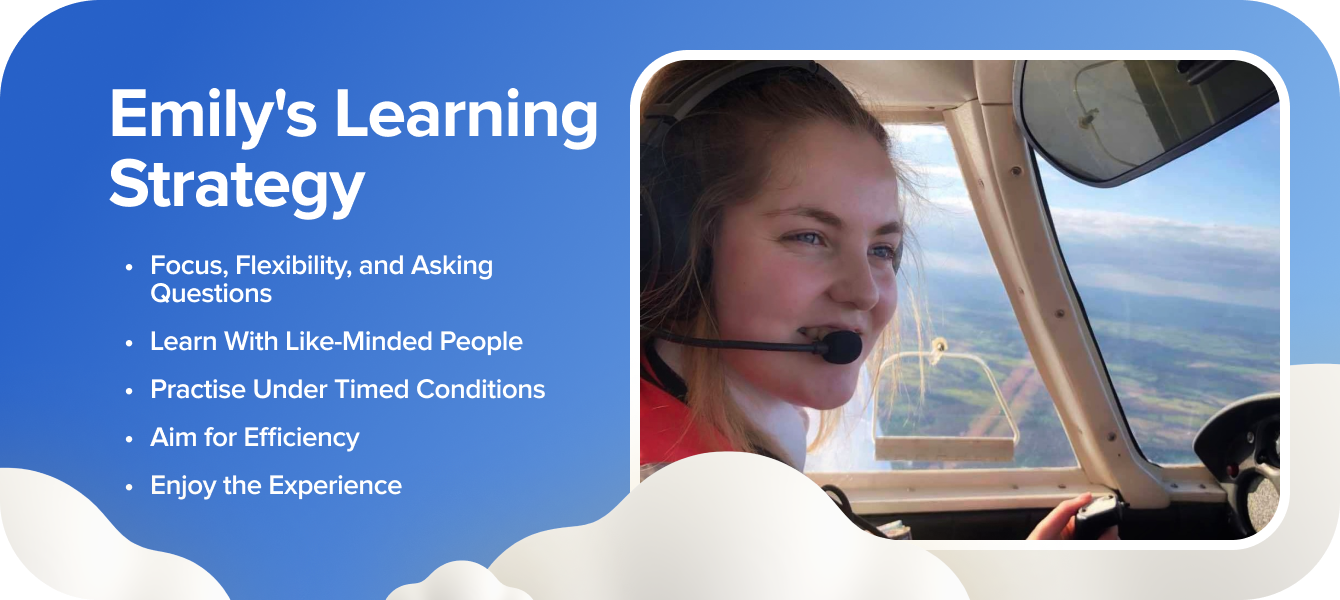
Emily's approach to ATPL training highlights the importance of finding a study strategy that works for you. While her ATO program offered a structured timetable, she thrived with a more flexible schedule, breaking down subjects into shorter, focused sessions to maintain focus and avoid information overload. This approach caters to those who prefer variety and may struggle with rigid routines.
Focus, Flexibility, and Asking Questions
These elements come through as essential components of Emily's recipe for success. She highlights the importance of maintaining a focused approach to studies while also embracing flexibility to adapt to different learning styles and challenges. A key takeaway is the importance of not being afraid to ask questions, even if they seem silly.
Learn with Like-Minded People
Emily's experience at Leading Edge in Oxford highlights the power of open communication and collaboration. As she reminds us, there's no shame in asking questions, however 'silly' they may seem. Chances are, your classmates share similar struggles, and open discussion can lead to a deeper understanding for everyone involved.
Collaborative study sessions, facilitated by tools like Kahoots, proved to be a valuable strategy for Emily. She speaks fondly of the positive and student-oriented environment at Leading Edge, which fostered a sense of community. This approach allowed students to learn not only from the curriculum but also from each other's explanations and perspectives.
Read the full story about Emily's ATPL exam success here.
Practise Under Timed Conditions
Building on Emily's point about open communication, she also highlights the importance of incorporating timed practice sessions into your study routine. This helps you get adjusted to exam pressure and develop strategies for efficient time allocation.
Leading Edge's ATPL training was divided into three modules, with progress tests and school finals acting as checkpoints before each official exam. This structured approach provided opportunities for self-assessment, allowing students to identify areas requiring further focus before the final exams.
When it comes to exam preparation, Emily suggests focusing on the most challenging subjects. Additionally, for last-minute revision, she found it valuable to concentrate on recently encountered questions within question banks. She also highlights the benefit of explanations and comments provided by other users on the platform.
Aim for Efficiency
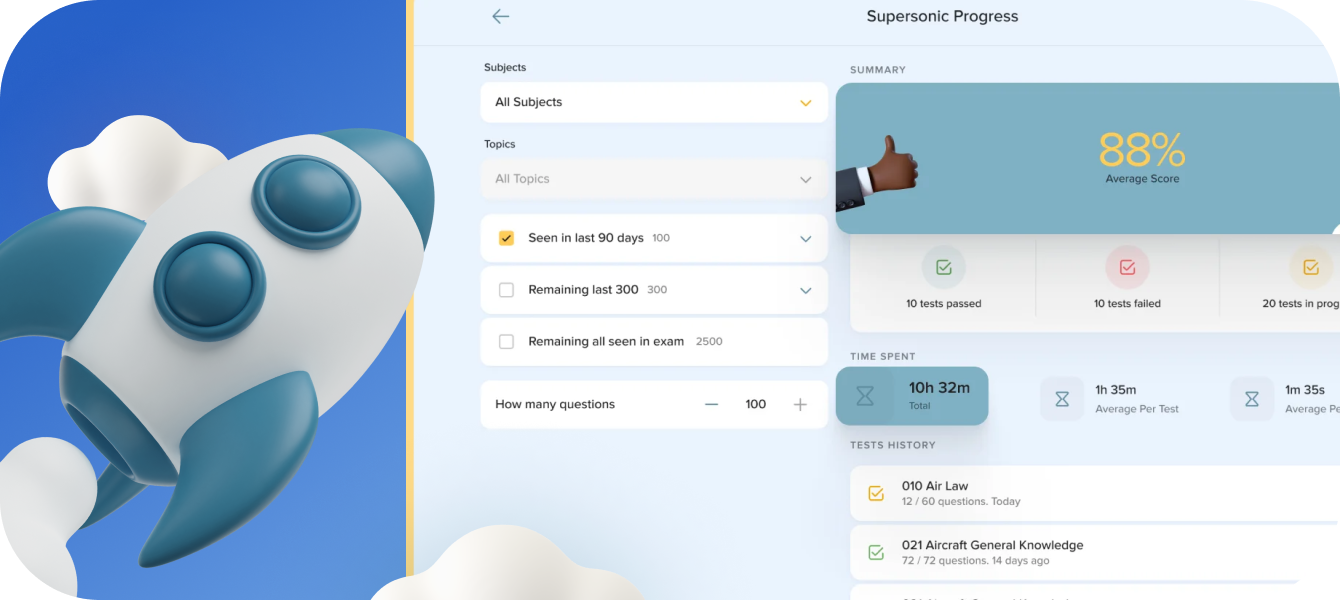
The cornerstone of Emily's success seems to be her strategic use of a question bank with a comprehensive database. She wasn't satisfied with simply reviewing previously seen questions.
Instead, she employed a multi-faceted approach.
Authority filtering. By filtering questions by the issuing authority, Emily ensured she was practising with content relevant to the specific exam she was preparing for.
Comprehensive practice. She went beyond just familiar questions and practised all questions within a subject to gain a broader understanding and identify potential knowledge gaps.
Last-minute cramming with focus. In the final stretch before exams, Emily honed in on the most recently seen questions (around the last 100) for targeted retention, increasing her recall during the exam.
Even if something's easy, don't overlook it. It's an average booster. Get that 100% don't settle for 75%.
Enjoy the Experience
While acknowledging the importance of dedicated study time, Emily highlights the importance of scheduling breaks, interacting with friends, and keeping a positive attitude throughout the training process.
Finally, remember to maintain a healthy balance. As Emily says, embrace the learning experience, enjoy the journey, and don't let the stress overwhelm you. After all, becoming a pilot should be an exciting and fulfilling adventure!
Feeling overwhelmed by ATPL prep? Take a break and discover 7 Wellness Tips During ATPL Prep.
Study Practices from Cameron
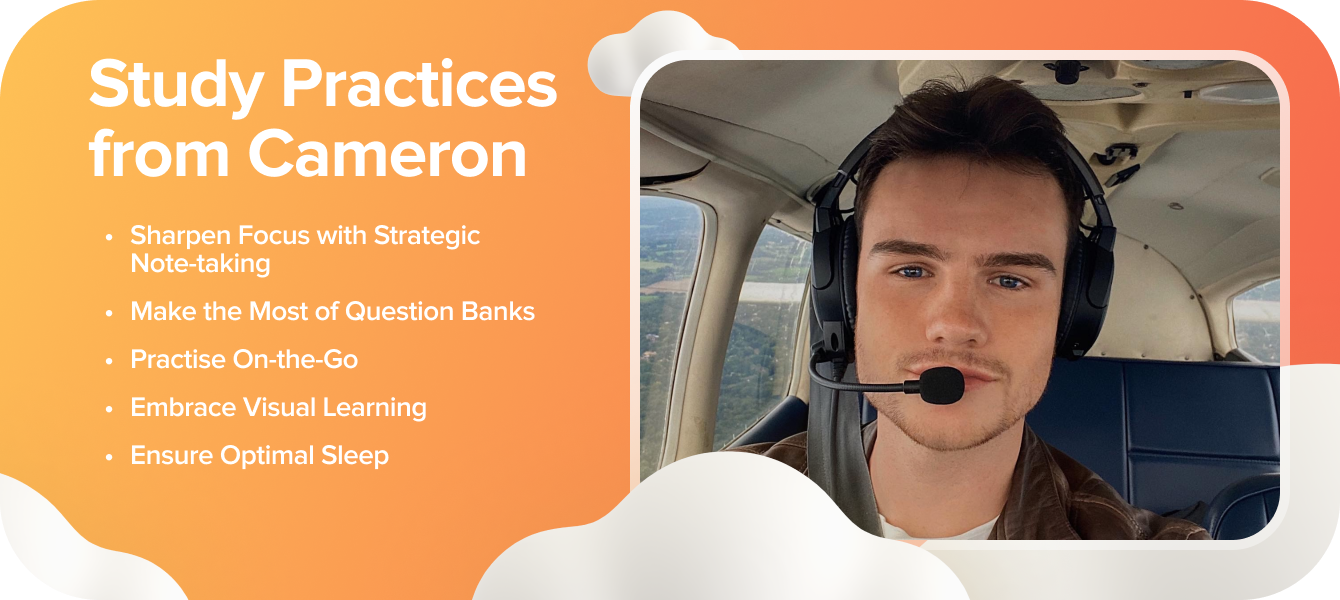
Cameron's approach highlights the importance of tailoring your learning methods to your individual preferences. Initially drawn to a note-taking approach, he discovered its limitations in retaining the vast amount of information required for the exams. This awareness prompted a strategic shift towards question banks, a decision that proved critically important in his success. Here's a breakdown of Cameron's winning strategies.
Sharpened Focus with Strategic Note-taking
Cameron's learning approach diverged from students who swore by comprehensive notes. He discovered that meticulously crafting detailed notes wasn't as effective for his understanding. Instead, he adopted a streamlined method of annotating key points directly within the learning materials. This strategy allowed him to progress through the content at a faster pace and dedicate more time to the crucial aspect of exam preparation: practising exam questions. By focusing on active engagement with the material through annotation, he could delve deeper into key concepts and solidify his understanding, ultimately leading to better exam performance.
Make the Most of Question Banks
Central to Cameron's ATPL exam success was his strategic use of question banks. He recommends getting involved with multiple banks to gain exposure to a wider variety of questions. Since he knew that rote memorisation from notes wasn't enough, he underlined the importance of practising specific question formats and knowledge required for the exams.
Completing a high volume of practice questions exposed areas requiring further revision, allowing for a targeted and efficient use of study time. Furthermore, the act of repeatedly answering questions served to strengthen memory and knowledge retention, ultimately leading to exam success.
Cameron goes beyond simply using question banks. He outlines a step-by-step process to improve their effectiveness:
Comprehensive testing. After completing a module's content, create a mega-test that incorporates all available practice questions for that subject. This initial phase aims for breadth of exposure rather than speed or accuracy.
Gradual refinement. As exams approached, Cameron employed various filters within the question banks. He focused on “real exam questions” and filtered by “exam authority” to mimic the actual exam format and content. Additionally, he strategically trained on the most recently seen questions (around the last 100) offered by the bank for that extra edge.
Conquering weaknesses. Knowing the importance of addressing past mistakes, Cameron underscored the value of re-doing all previously answered questions incorrectly. This ensured a deeper understanding of those areas and boosted his confidence.
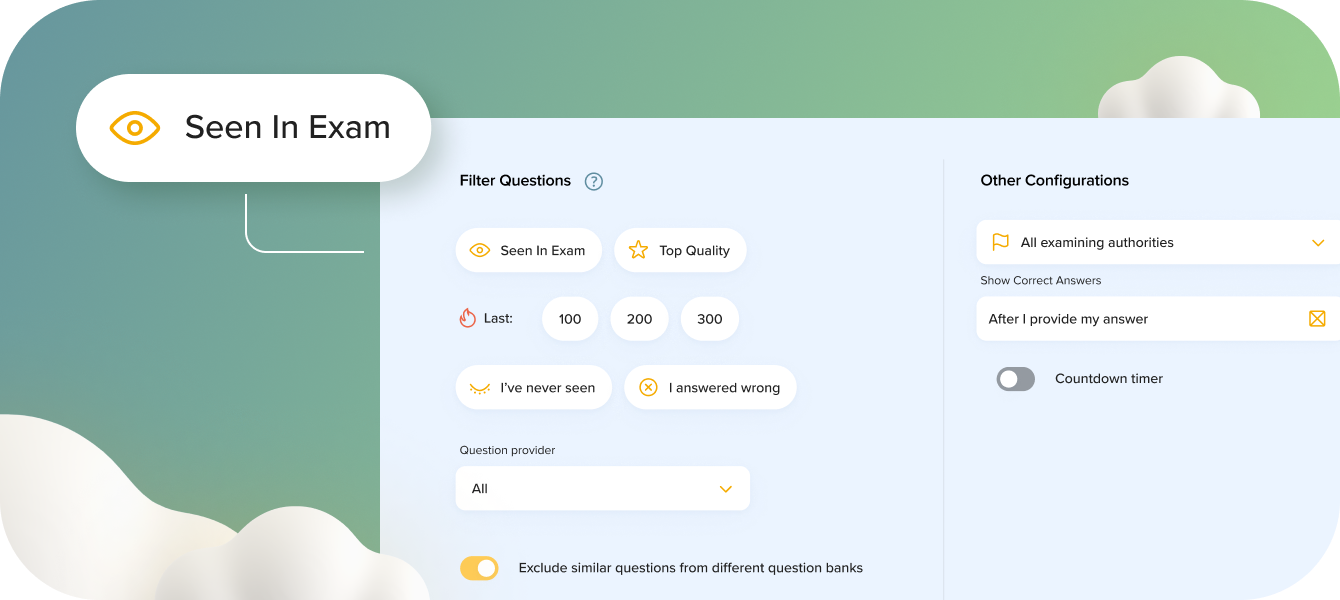
Practise On-the-Go
Understanding the value of studying on-the-go, Cameron highlights the user-friendliness of the Airhead app on his phone. This app, along with similar offerings from other question banks, allows you to squeeze in valuable study sessions during commutes, breaks, or even while travelling. These stolen moments can significantly enhance your knowledge retention.
Adopt Visual Learning
While question banks form the core of Cameron's strategy, he acknowledges the value of diversifying resources. Visual learners can benefit from explanatory videos offered by some question banks or platforms like YouTube. Many educational channels offer explanations and insights on aviation topics. Textbooks can provide in-depth explanations of complex concepts. This holistic approach caters to different learning styles and ensures a well-rounded understanding of the material.
Ensure Optimal Sleep
A well-rested mind is a critical asset in your ATPL exam regimen. Numerous studies highlight the link between sleep deprivation and decreased cognitive function, impacting memory, focus, and reaction time – all crucial skills for exam success. Aim for a consistent sleep schedule throughout your preparation, ideally getting 7- 8 hours of quality sleep each night.
Cameron, for instance, accents the importance of a good night's sleep alongside his other study strategies. He found that maintaining a regular sleep schedule not only enhanced his focus during study sessions but also improved his ability to retain information and recall it effectively under exam pressure.
Final point
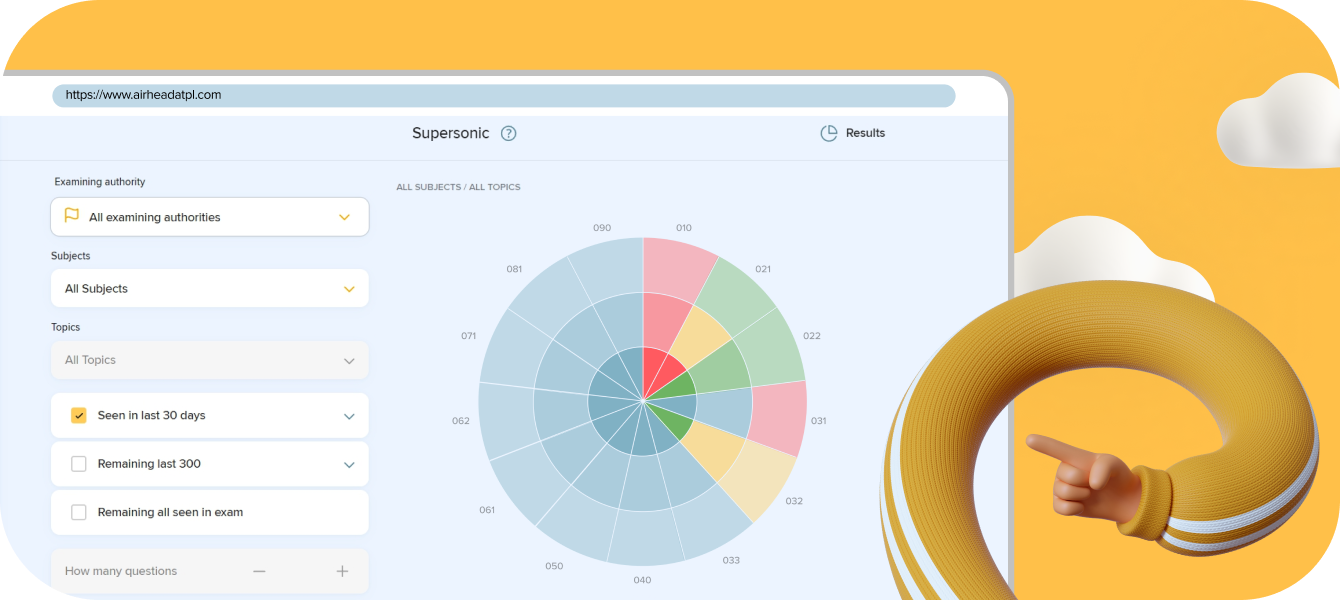
Conquering the ATPL exams may seem like a daunting climb, but the stories of these students illuminate a crucial truth: it's a summit within reach. Notice how each student's journey is unique – Thomas points to calmness, Emily stands for open communication, and Cameron focuses on targeted practice. This beautiful diversity of approaches underscores a powerful message: there's no single “right” way to conquer the ATPL.
By combining these student insights with the power of a question bank like Airhead, you'll be well-equipped to forge your path to success. Remember, dedication and the right study approach are the keys that unlock your potential. So, embark on this journey of exploration – experiment with different techniques, adapt to what works best for you, and conquer those ATPL exams! Your pilot dreams await.


